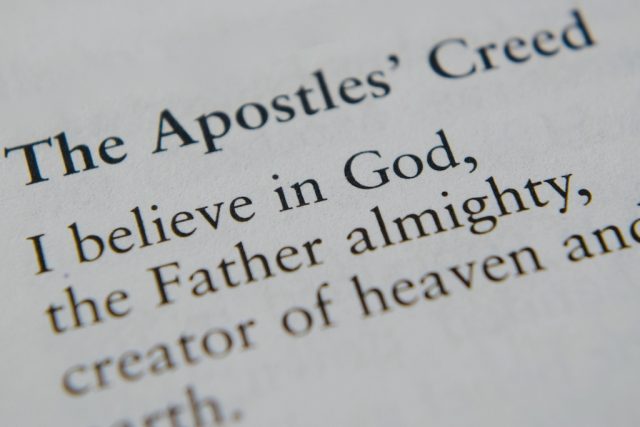Article
The Thrill of Orthodoxy

What the church needs today is to recapture the thrill of orthodoxy. For a philosopher like Aristotle, the word orthodoxy meant “right” or “correct” opinion, but the early Christians repurposed it to mean “having right belief,” and they saw right belief as vital because of its connection to right worship of the one true God. Over the centuries, orthodoxy has come to mean conformity with Scripture, as agreed upon by the Church.
You may think of orthodoxy as nothing more than a dry and dense list of doctrines. Necessary perhaps, but thrilling? Sounds a little like expecting your math book to give you heart palpitations.
But these two words belong together. I agree with the English crime writer and poet Dorothy Sayers who responded to the idea that empty churches are a result of preachers insisting too much on “dull dogma.” They get it backwards, she wrote: “It is the neglect of dogma that makes for dullness.” It’s boring to adapt the Christian faith to better fit people; what’s exciting is to adapt people to better fit the Christian faith. “The Christian faith is the most exciting drama that ever staggered the imagination of man — and the dogma is the drama.”1
Orthodoxy is an ancient castle with spacious rooms and vaulted ceilings and mysterious corridors, a vast expanse of practical wisdom handed down from our forefathers and mothers in the faith. Some inhabit the castle but fail to sift through its treasures. Others believe the castle stands in the way of progress and should be torn down. A few believe the castle’s outer shell can remain for aesthetic purposes, so long as the interior is gutted.
But in every generation, God raises up those who see the value in the treasure, men and women who maintain a deep and abiding commitment to recognize and accentuate the unique beauty of Christian truth so that future generations can be ushered into its splendor.
The world finds it thrilling to follow the suggestion of the old song from the 1960s — to “make your own kind of music” and “sing your own special song.”2 You decide what song to sing, what path to follow, what traditions to cast off, and what beliefs work for you “even if no one else sings along.”
But the truth is, the reverse is more thrilling: we need the “old, old story” of “how a Savior came from glory.”3 We need to be part of a courageous choir of Christians — reawakened to the beauty and majesty of the Christian melody, committed to right belief and right worship. To join our voices with the apostles of 2,000 years ago, singing the one song that by the power of the Spirit still resonates today.
Excerpted with permission from The Thrill of Orthodoxy by Trevin Wax (InterVarsity Press, ©2022 ). Also, check out the Reconstructing Faith podcast by Trevin Wax for an examination of the credibility crisis the American church is facing.
Notes
1 Dorothy Sayers, Letters to a Diminished Church: Passionate Arguments for the Relevance of Christian Doctrine (Nashville, TN: W Publishing Group, 2004), 1.
2 “Make Your Own Kind of Music,” written by Barry Mann and Cynthia Well, performed by Cass Elliott in 1969
3 The first lines from E.M. Bartlett’s 1939 hymn “Victory in Jesus”




